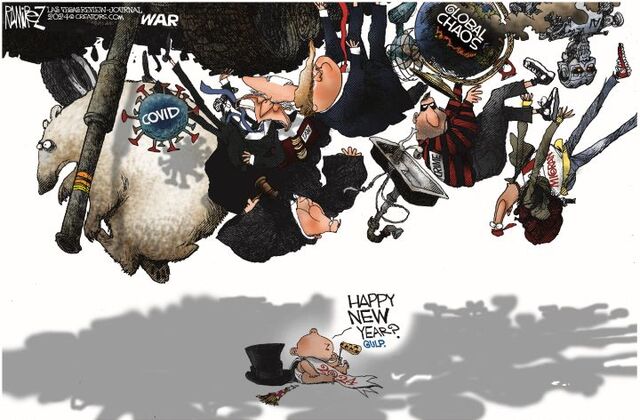[ad_1]
Claudine Gay, Harvard’s first black president and only the second female president, resigned from her post Tuesday amid allegations of plagiarism, which became widespread after she testified last month before a congressional committee about anti-Semitism on college campuses. The criticism followed controversy in recent weeks related to the testimony.
His resignation marks the shortest tenure of a president in Harvard’s history and highlights the evolving role of the higher education sector and the limits of free speech on college campuses.
“It is with a heavy heart but with a deep love for Harvard that I write to share that I am leaving the presidency,” Gay, who assumed the presidency six months ago, said in a statement. “This is not a decision I reached lightly. Indeed, it is difficult beyond words as I look forward to working with many of you to carry forward the commitment to academic excellence that has driven this great university for centuries.
In the weeks following the October 7 surprise attack against Israel by the terrorist group Hamas, most elite schools decided to remain silent about the attack and the upcoming war – a stance that most institutions of higher education would adopt. and what is known as “institutional neutrality”.
FIRE is one of the nation’s leading free speech advocacy organizations focused specifically on college campuses, helping colleges and universities take a neutral stance on issues such as the war between Israel and Hamas and convincing students, faculty, and the broader campus community gives advice. They have an obligation to protect free speech and student safety – and they will not comment on hot political issues to avoid upsetting students and faculty.
But controversial statements by students and faculty about Israel and the Palestinians have made national headlines, leading to widespread distrust of the higher education community. As protests intensified on campuses and reports of anti-Semitic threats continued to emerge, there were calls for college presidents to hold students and faculty accountable, be clear about institutions’ stance on the war, and take a tough stance against growing threats. Demand also started rising. Targeting Jewish students.
cartoon on corona virus

Gay faced particularly intense criticism for Harvard’s response to a letter signed by more than 30 student organizations in solidarity with the Palestinians following the Hamas attack, declaring that ” The Israeli regime was “solely responsible for all forms of violence.”
In response, Gay issued a statement condemning “terrorist atrocities committed by Hamas”. And although he did not criticize student leaders for the letter, he emphasized that students’ opinions do not reflect institutional stances.
Tensions were at their peak when Gay testified before the House Education and Workforce Committee along with fellow presidents Sally Kornbluth of the Massachusetts Institute of Technology and Elizabeth Magill of the University of Pennsylvania. The trio were condemned by lawmakers on both sides of the House for their evasive responses and legal responses to what their campuses do and do not tolerate when it comes to anti-Semitic threats.
Magill resigned two days later.
At the same time, rumors began to spread about problems with citations in Gay’s doctoral thesis from the 1990s, including claims by conservative policy expert Chris Ruffo that he had lifted text from others.
From there, calls grew to oust Gay – even after the Harvard Corporation, one of the university’s two governing boards, voted to support his continued tenure as president.
“Our extensive deliberations reaffirm our belief that President Gay is the right leader to help heal our community and address the serious social issues we face,” board members said in a statement at the time. “
But as calls for his resignation from donors and others with significant influence continued, Gay said Tuesday it was in the school’s best interest for him to resign.
“After consultation with members of the Corporation, it has become clear that my resignation is in the best interests of Harvard so that our community can deal with this moment of extraordinary challenge by focusing on the institution rather than an individual,” Gay said in a statement. said in.
The Harvard Corporation said it accepted the resignation “with regret.”
Conservatives cheered the resignation, took credit for pushing him out, and used the moment to fuel some of their culture war, claiming that the higher education sector — and in particular, elite schools — can’t be trusted. Could.
“All three university presidents gave morally bankrupt testimony in the now infamous congressional hearings on a very specific ethical question: Does calling for the genocide of the Jews violate your university’s code of conduct,” New York Republican Representative Elise Stefanik said. Said in reply. Gay’s resignation. “And one after another, whether it was MIT, Penn, or Harvard, failed to give the right answer; instead, they said, ‘It depends on the context.'”
Representative Virginia Foxx, the North Carolina Republican who heads the Education and Workforce Committee, said her committee’s investigation will continue.
“Postsecondary education has been taken over in a hostile manner by political activists, vigilante faculty, and partisan administrators,” Fox said in a statement. “The problems at Harvard are much bigger than one leader, and the committee’s oversight will continue.”
Others condemned his resignation and asserted that Gay was ousted because of an ideological, well-funded effort by conservatives to defund anything that tarnishes the reputation of higher education. Remain ready.
Randall Kennedy, a Harvard legal scholar and one of the university’s most prominent black faculty members, told The New York Times, “I am saddened by the inability of a great university to defend itself against a dangerously effective campaign of misinformation and intimidation. “
[ad_2]
Source link
